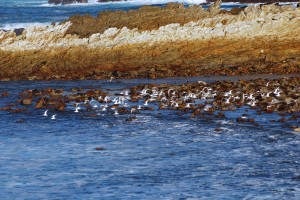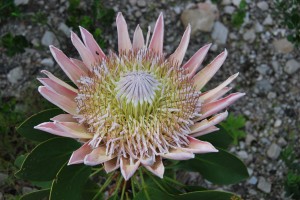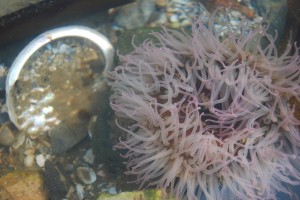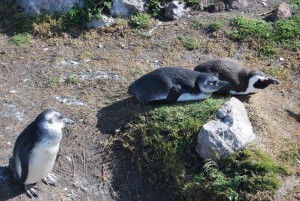 Quote from Trevor Manuel – Co–chair of the Global Ocean Commission, and Minister in the South African Presidency responsible for planning:
Quote from Trevor Manuel – Co–chair of the Global Ocean Commission, and Minister in the South African Presidency responsible for planning:
‘If society is to develop sustainably, it’s vital that we manage the ocean wisely, on two different timescales. In the short term, we need put the extractive industries using the ocean on a sustainable footing, whether that’s mining, fishing or anything else. If we get that right, we’ll feed and resource people better and help societies develop sustainably. In the longer term, the ocean is an integral part of the biosphere, which is our life support system. You can’t risk that. So what we’re doing in the Global Ocean Commission is to look at these issues, talk to experts and practitioners in all the relevant fields, and then distil their expertise into a number of key reforms that we have to implement as a global society of seven billion people if we are to continue benefiting from everything the ocean provides.’
 According to the Climate and Development Knowledge Network (CDKN) atmospheric carbon dioxide concentrations are now at 400 parts per million (ppm) and scientists have estimated that keeping the mean temperature rise between 2 degrees centigrade and 2.8 degrees centigrade will require the stabilisation of atmospheric carbon dioxide at between 445 ppm and 490 ppm. Although still catastrophic for vast numbers of people, fauna and flora species and marine and terrestrial ecosystems around the world, it is hoped that this limit will keep the global climate from crossing a dangerous threshold. What would a seemingly small increase of “degree days” mean for us, keeping in mind that the danger lies not in a 2°C increase but in the cumulative effect of 365 days at an increase of 2°C?
According to the Climate and Development Knowledge Network (CDKN) atmospheric carbon dioxide concentrations are now at 400 parts per million (ppm) and scientists have estimated that keeping the mean temperature rise between 2 degrees centigrade and 2.8 degrees centigrade will require the stabilisation of atmospheric carbon dioxide at between 445 ppm and 490 ppm. Although still catastrophic for vast numbers of people, fauna and flora species and marine and terrestrial ecosystems around the world, it is hoped that this limit will keep the global climate from crossing a dangerous threshold. What would a seemingly small increase of “degree days” mean for us, keeping in mind that the danger lies not in a 2°C increase but in the cumulative effect of 365 days at an increase of 2°C? According to ocean warrior, Paul Watson, “future generations won’t have any respect for cultures like ours that have diminished their world”. He also says that “all social change comes from the passion and intervention of a few individuals or small groups of individuals. Slavery wasn’t ended by any government or any institution; women got the right to vote not because of any government; the same with the civil rights movement and the ending of apartheid. It was individuals like Gandhi and Mandela who made the difference. We need individuals with the passion and energy to get involved. That’s where I see some optimism. That’s where some results are happening”.
According to ocean warrior, Paul Watson, “future generations won’t have any respect for cultures like ours that have diminished their world”. He also says that “all social change comes from the passion and intervention of a few individuals or small groups of individuals. Slavery wasn’t ended by any government or any institution; women got the right to vote not because of any government; the same with the civil rights movement and the ending of apartheid. It was individuals like Gandhi and Mandela who made the difference. We need individuals with the passion and energy to get involved. That’s where I see some optimism. That’s where some results are happening”. < African penguins at the Stony Point colony in Betty's Bay in the Western Cape[/caption]It's wonderful to hear good news stories and even more so when these stories centre around conservation. Tuna longline fleets and the trawl fishery have been responsible for massive seabird population decreases on a worldwide basis with around 300 000 seabirds being caught each year as bycatch - longlines can extend for over 100 kms with 2 000 to 3 000 baited hooks with fishing going on 22 to 24 hours a day.
In 2006 South Africa became the first country to establish an Albatross Task Force (ATF) team with Argentina, Brazil, Chile, Ecuador, Namibia and Uruguay following suit. The SA ATF team has effectively reduced the hooking of albatross by South African longlining fleets from around 12 000 to 16 000 birds a year to "low hundreds". There has also been a more than 80% reduction in the catching of seabirds from trawl fleets in SA waters, which is indeed a good news story. Well done to BirdLife South Africa.
The African penguin is one of only two seabirds that breed along the South African coast that have been listed globally Endangered by Birdlife International. In the 1950s there were around 150 000 pairs of African penguin in South Africa, however this number has since dropped to 20 000 pairs with one of the reasons for the decline being that African penguins are specialists who only eat anchovies and sardines and these fisheries have declined on the west coast, having shifted to the south coast. The Stony Point colony at Betty’s Bay, however, which numbers around 1 000 breeding pairs is doing well with numbers increasing – another good news story!
< African penguins at the Stony Point colony in Betty's Bay in the Western Cape[/caption]It's wonderful to hear good news stories and even more so when these stories centre around conservation. Tuna longline fleets and the trawl fishery have been responsible for massive seabird population decreases on a worldwide basis with around 300 000 seabirds being caught each year as bycatch - longlines can extend for over 100 kms with 2 000 to 3 000 baited hooks with fishing going on 22 to 24 hours a day.
In 2006 South Africa became the first country to establish an Albatross Task Force (ATF) team with Argentina, Brazil, Chile, Ecuador, Namibia and Uruguay following suit. The SA ATF team has effectively reduced the hooking of albatross by South African longlining fleets from around 12 000 to 16 000 birds a year to "low hundreds". There has also been a more than 80% reduction in the catching of seabirds from trawl fleets in SA waters, which is indeed a good news story. Well done to BirdLife South Africa.
The African penguin is one of only two seabirds that breed along the South African coast that have been listed globally Endangered by Birdlife International. In the 1950s there were around 150 000 pairs of African penguin in South Africa, however this number has since dropped to 20 000 pairs with one of the reasons for the decline being that African penguins are specialists who only eat anchovies and sardines and these fisheries have declined on the west coast, having shifted to the south coast. The Stony Point colony at Betty’s Bay, however, which numbers around 1 000 breeding pairs is doing well with numbers increasing – another good news story!